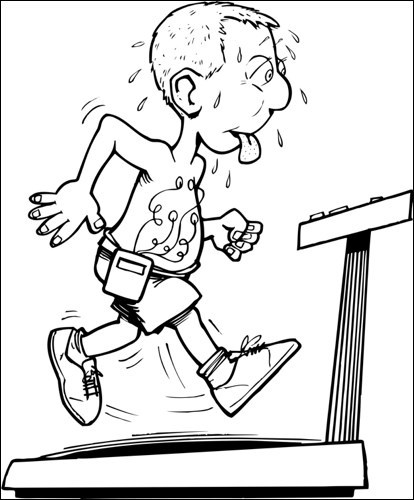We are both highly intelligent and at the same time hindered by our biological drives towards pleasure seeking and pain avoidance. In this time of New Year’s resolutions, keeping promises to ourselves often means delaying the instant gratification of last year’s bad habits. Putting off easy immediate rewards (comfort food, alcohol, cigarettes, bad TV) is difficult. So how do we become more like the two marshmallow kids in a famous Stanford university experiment?
In the late 1960s and early 1970s, a famous experiment was conducted involving marshmallows. The experiment was an attempt to study and understand delayed gratification. In these experiments, conducted by Professor Walter Mischel, a child was offered the choice between one small reward given immediately or to wait and be offered a double reward. The rewards in this case were either a single marshmallow or two marshmallows. The child would be told these options, and the single marshmallow would be placed on a table in front of them. The experimenter would then leave the room for an allotted period of time, a time not made known to the child. The purpose was to see whether the children would wait for two marshmallows or would instead consume the single reward. In following up on children involved in these experiments, the children that were able to put off instant gratification were more likely to welcome success in their future adult lives through better life outcomes.
Hard work, making healthy/positive life changes and sticking to long-term goals that seem unattainable, can be both frustrating and painful, almost like stubbing your toe on a living room coffee table. Staying motivated without rewards is tricky and often feels like pushing against a wall. Motivations drive our behaviours and often it seems as if we are working towards outcomes that may never arrive. More often than not, I’d heard this comment from older co-workers while on work sites in Calgary: one step forward and two steps back. They were right. Affecting positive change and reaching goals sometimes seems like going nowhere fast, being stationary and feels like being stuck on a never-ending treadmill.
When on a treadmill, a part of my New Year’s resolution, I’m working hard to not fling myself off the back of this mechanical speeding belt. I’m not sure who invented these things, but I’m quite sure it was someone involved in creating the production line, and then boosting it with steroids and placing it in a public place like a gym. Then we all pay to run on it and see how well we can do. When attempting to run, my main goal is to make sure I don’t whip off the back like the people we’ve all seen on America’s Funniest Home Videos. I’ve made sure to pre-plan for the tragedy that will ensue if my legs somehow tangle like two pieces of shoestring flapping in the wind. I’m prepared to tuck and roll, if need be, and stand up immediately to start jogging in place as if nothing happened, saying to myself and turning my head confidently to the nearest person to nod slightly with a wink, “I meant to do that.”
So how do we stay motivated to work without rewards and keep pushing towards our goals when they seem almost impossible to achieve?
I’m hoping I can somehow transfer my treadmill experience to the rest of my life. I first started running because I knew good cardio is good for the body, but eventually I learned to enjoy it. It’s something like meditation, cathartic. And trust me; there was a time when I hated every second of it. I suppose I went through the process of having extrinsic motivation (telling myself it should be done) to having intrinsic motivation (an inward enjoyment). At first the activity was a means to an end, but then miraculously it became an end in itself. I had trained myself to enjoy something that did not offer immediate rewards. I learned to enjoy the process. I guess that explains the saying: it’s not the destination, it’s the journey.
Through this personal and completely illegitimate experiment conducted by an average Joe, I learned our brains have the capacity to train ourselves to enjoy a task that at first seems impossible. I’ve learned to motivate myself to jog for longer periods of time, even if it’s not always gratifying. Maybe one day there will be a reward, maybe not. Maybe I will make it onto America’s Funniest Home Videos. I can see it now, some guy running on a treadmill, a single marshmallow within his reach, wearing one of those silly stick helmets from cartoons with two marshmallows continuously dangling from a string just beyond his fingertips. At least he’s jogging. It’s good for his health. Maybe that’s the point.



